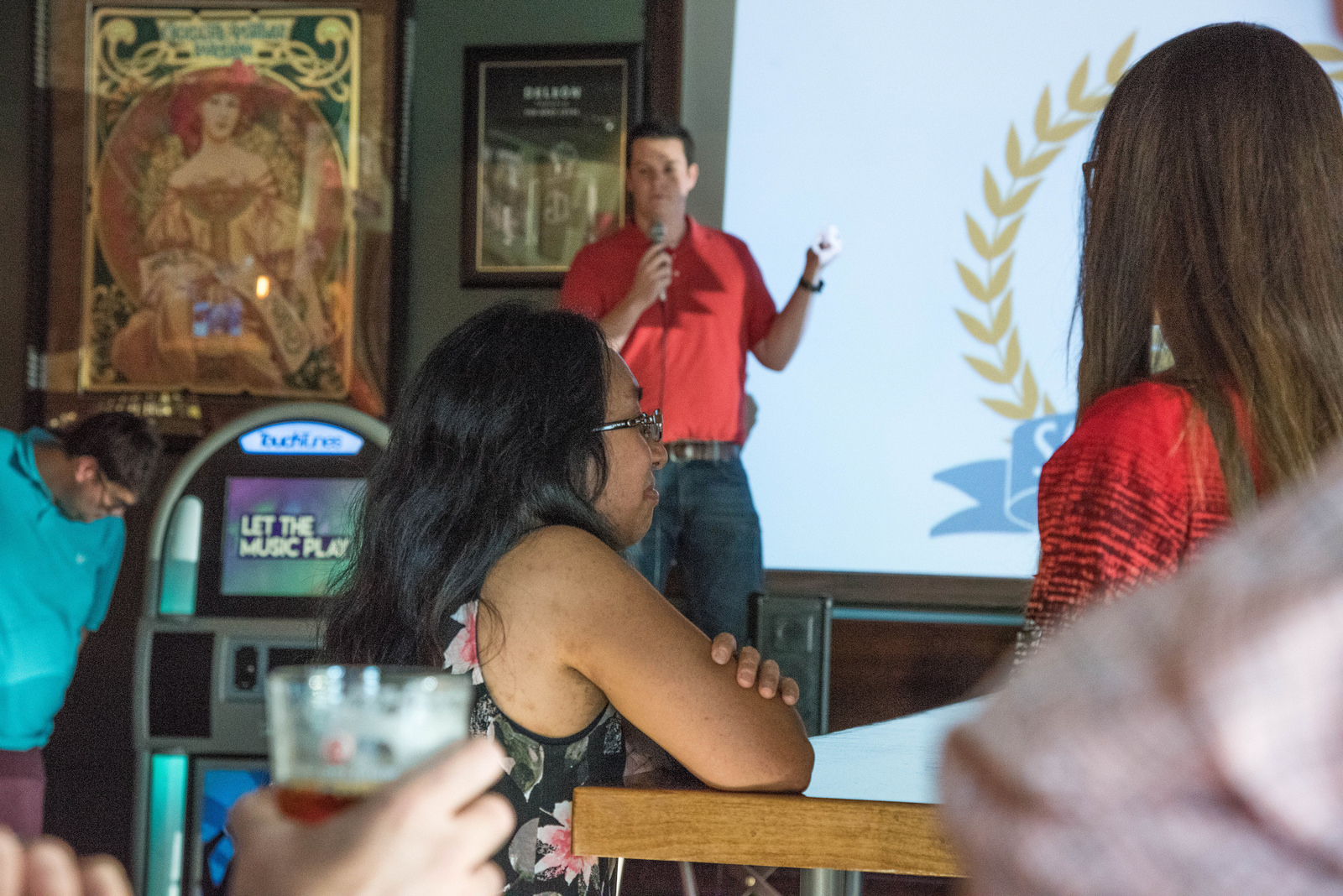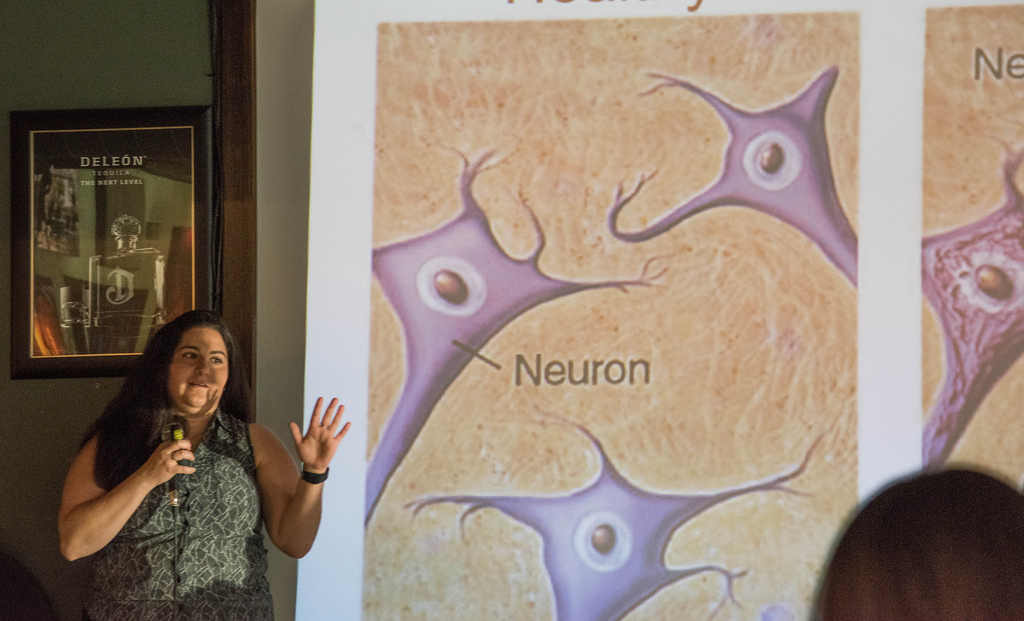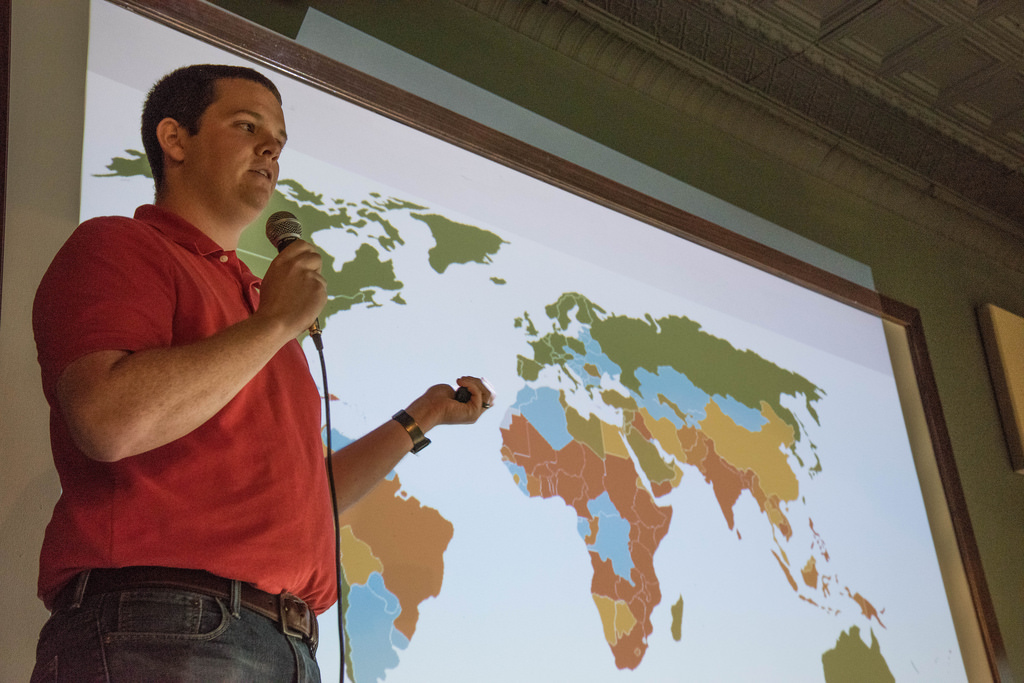Published on
Grad students present brain science, crop biology research in series kick-off
By Phillip Sitter | MU Bond Life Sciences Center

University of Missouri PhD student in biological sciences Nat Graham introduces the first Science on Tap CoMo event on the evening of Tuesday, June 28 at Ninth Street Public House. | photo by Phillip Sitter, Bond LSC
You never know what conversations you might overhear at a bar.
The talk centered on neural proteins and vitamin A-fortified bananas Tuesday night as about 40 science-minded people met at 9th Street Public House for the first Science on Tap CoMo.
Science on Tap is a monthly program scheduled for the fourth Tuesday of each month, and it gives Mizzou graduate students in science, technology, engineering and mathematics a chance to present research in their field to a casual audience.
Anahita Zare and Nat Graham at Public House, both graduate students at the University of Missouri carried the conversation.

MU PhD student Anahita Zare shows the differences between healthy neural tissue and that affected by Alzheimer’s disease in her presentation at the first Science on Tap CoMo event Tuesday, June 28 at Ninth Street Public House. | photo by Phillip Sitter, Bond LSC
Zare, a Ph.D. candidate in chemistry at MU, spoke about her work on the development of a laser that, once completed, will allow her and other researchers to be better able to study neural proteins in their natural environment. With this ability to better scrutinize drug interactions with these proteins — as opposed to just before and after observations — the work could let researchers make advances in the race for cures to diseases of the brain like Alzheimer’s.
The incremental progress of work on the laser is all about the tiniest of details. Zare used an analogy of letters and words – “I’m changing letters and watching what happens to the words …” “I know what I’m changing and how I’m changing it, and then see its manifestations,” Zare said about the task.

Nat Graham, an MU PhD student in biological sciences, explains how many people around the world have nutrient deficiences in their diets, which genetically-engineered crops could help prevent. Graham spoke at the first Science on Tap CoMo event at Ninth Street Public House. | photo by Phillip Sitter, Bond LSC
Graham addressed the coming global food security crisis by offering a solution in the form of genetically-engineered crops with higher nutritional content. While the introduction of genetically-modified organisms (GMOs) into the global food supply have drawn criticism and protest, Graham was steadfast when he said “I believe lives would be saved if this were released.”
He specifically spoke of vitamin A-enriched bananas. It could be ideal for countries like Uganda, a very large exporter and consumer of bananas as a staple crop. Selective breeding techniques — including even exposure of test crops to radioactivity to promote genetic mutations that may prove to be useful — are options in the development of vitamin-enriched crops, but Graham said these other techniques are too unpredictable and time-consuming to guarantee the results needed.
Graham said he had no fear of GMOs, and in fact really wanted to try a vitamin A-enriched “super banana,” but obtaining one is difficult because of regulations that forbid crossing state lines with these bananas.
He also reminded the audience that although the study of plants often seems boring, it goes beyond gardens and forests. Crops are plants, too, and, among many other things, beer comes from crops. So, food security affects your drink.